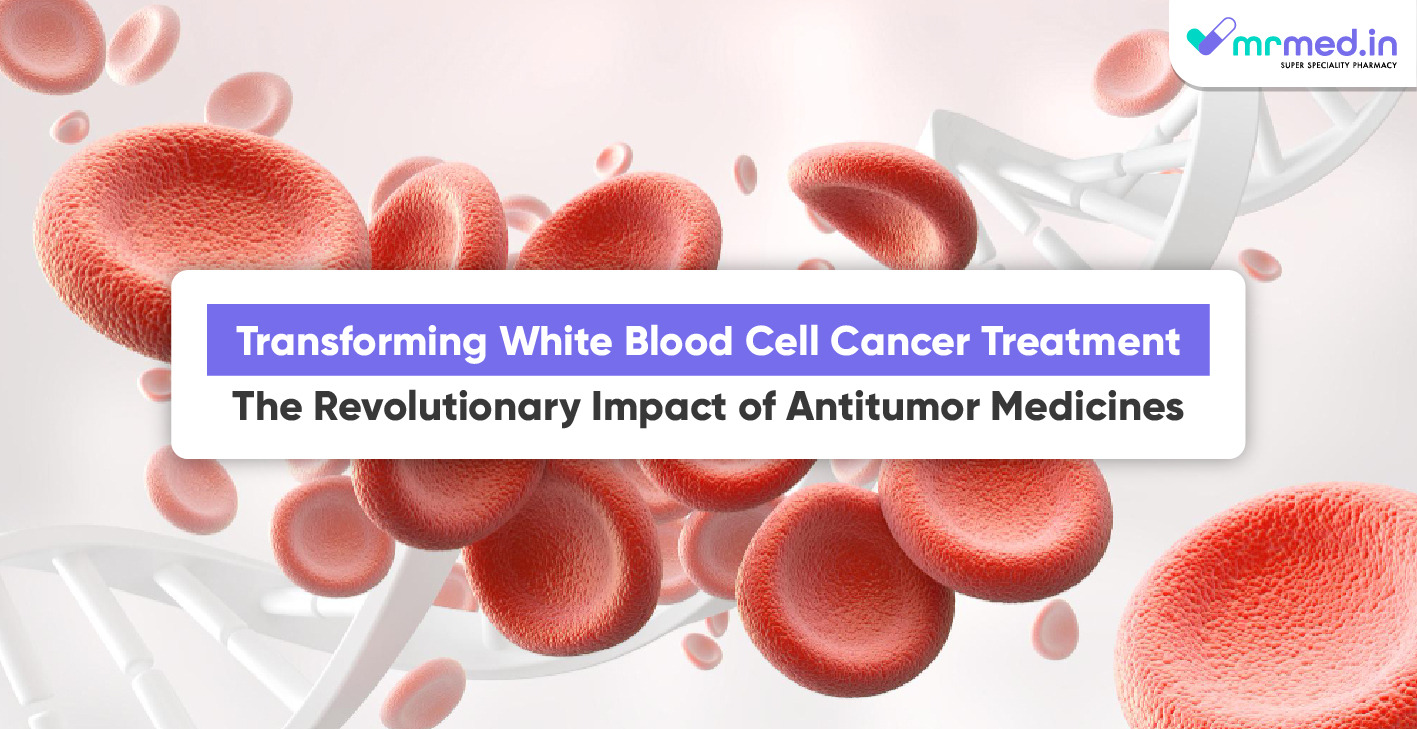Cancer has always been a significant challenge to the medical community due to its widespread and frequently unexpected character. White blood cell malignancies come in a variety of types, but leukaemia in particular has special complications that need creative treatment strategies. Antitumor medications have emerged as potent instruments in the revolution of white blood cell cancer treatment, marking a hopeful paradigm change in oncology in recent years.
Understanding the Challenge of White Blood Cell Cancers
Leukaemias, often known as white blood cell malignancies, are a class of illnesses marked by the unchecked growth of aberrant white blood cells. These malignancies frequently start in the bone marrow, which is where blood cells are made. They can move fast to other areas of the body and impair the immune system's capacity to do its job.
Chemotherapy, radiation therapy, and stem cell transplantation have been the standard treatments for white blood cell malignancies. These methods have had some effectiveness, but they have a lot of disadvantages, such as the possibility of damaging healthy cells and systemic adverse effects. The development of antitumor medications has been fueled by the demand for more focused and potent treatments, leading in a new age in the struggle against these difficult tumours.
Antitumor Medicines: Precision in Action
The phrase "antitumor medicines" refers to a class of medications that are especially intended to target and impede the development of cancer cells. Antitumor medications function with precision that reduces side effects, in contrast to conventional therapies that can impact both healthy and malignant cells. This focused approach is especially important when it comes to white blood cell malignancies, since the immune system's delicate balance is at risk.
Peg L-Asparaginase is a prime illustration of the revolutionary potential of antitumor medicines. The therapy of white blood cell malignancies has shown great promise for this enzyme-based medication, especially in instances of acute lymphoblastic leukaemia (ALL), a prevalent and aggressive subtype.
In Action: Precision Medicine
Antitumor medicines are a prime example of how white blood cell cancer treatment is moving towards precision medicine. Precision medicine recognises that every patient's cancer is different in terms of its genetic and molecular makeup, and it adjusts treatment plans appropriately. This method lowers the chance of resistance and recurrence while simultaneously improving treatment efficacy.
Precision medicine's customised approach is especially relevant to white blood cell malignancies because of the disease's heterogeneity, which calls for specialised care. The tailored mechanism of action is a prime example of how precision medicine may significantly improve patient outcomes.
Synergy and Combination Therapies
Antitumor medicines have a revolutionary effect on the treatment of white blood cell malignancy that extends beyond stand-alone therapies. These medications are being included more and more in all-encompassing treatment plans that take advantage of the synergies between various therapeutic methods.
Peg L-Asparaginase is frequently used in clinical practice in conjunction with chemotherapy regimens and other targeted therapeutics. By combining the best elements of each treatment, this multifaceted strategy seeks to increase the odds of success and decrease recurrence risk.
Antitumor medicines work well with other therapeutic modalities, which is evidence of the increasing complexity of cancer therapy. As our comprehension of the complex interactions that exist between cancer cells and their surroundings expands, so does our capacity to create individualised and efficient treatment plans.
Prospects for Hope
Both patients and medical professionals find a feeling of optimism in the introduction of antitumor medicines in the treatment of white blood cell cancer. In a field where obstacles have frequently appeared insurmountable, these novel medicines provide fresh opportunities for better results and a higher standard of living.
The field's current research and development provide a window into what white blood cell cancer treatment may look like in the future. The development of new antitumor medicines and improvements to current ones may result in even higher levels of effectiveness and fewer adverse effects. The future of hope is becoming more and more promising as new treatments develop, perhaps presenting white blood cell malignancies with a more difficult foe than in the past.
Conclusion
Finally, antitumor medicines are showing promise as game-changers in the treatment of white blood cell malignancy. These tailored treatments are changing the way we treat leukaemia and other cancers. Antitumor medications offer a ray of hope in the fight for more efficient, individualised, and bearable cancer treatment because of their accuracy, decreased toxicity, and possibility for combination therapy.
The continuous progress in antitumor medications is a tribute to the scientific community's perseverance and dedication in enhancing the quality of life for individuals impacted by white blood cell malignancies, even in the face of the intricate treatment of cancer. Even if there are still obstacles to overcome, the revolutionary potential of these medications inspires hope—the conviction that every advancement brings us one step closer to a time when cancer will not only be controlled but also completely eradicated.




